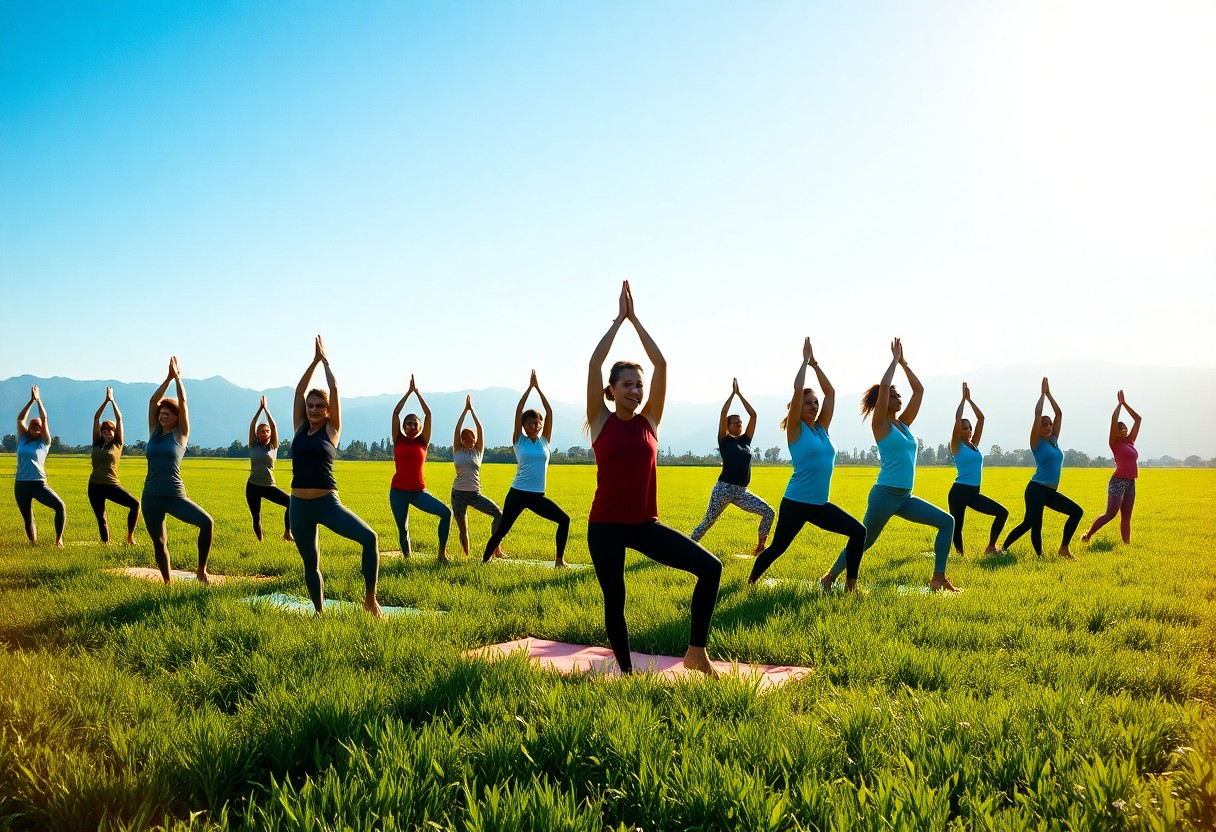As you celebrate the International Day of Dentist, you acknowledge the vital role dentists play in maintaining your oral health. You will learn about the risks of poor dental care, including tooth decay and gum disease, and the importance of regular check-ups for a healthy smile. By understanding the significance of this day, you can take control of your dental health and appreciate the dedicated professionals who work to keep your teeth and mouth healthy.

History
Your journey to understanding the significance of the International Day of Dentists begins with the rich history of dentistry. As you investigate into the past, you will discover the fascinating story of how dentistry evolved over time. The history of dentistry is a long and complex one, spanning thousands of years and involving the contributions of many cultures and individuals. You will learn about the various techniques, instruments, and treatments that have been developed to address the diverse needs of patients. From ancient civilizations to modern times, the field of dentistry has undergone significant transformations, shaped by advances in technology, changes in societal attitudes, and improvements in medical knowledge.
Origins of Dentistry
Around the time of the Indus Valley Civilization, which flourished around 4000-5000 years ago, you can find evidence of early dental practices. The people of this civilization developed a sophisticated system of dental care, which included the use of dental fillings, extractions, and oral hygiene practices. As you explore the history of dentistry, you will discover that ancient cultures such as the Egyptians, Chinese, and Greeks also made significant contributions to the field. The Egyptians, for example, are known to have used gold wire to create dental bridges, while the Chinese developed a system of acupuncture to treat dental pain.
Around the same time, other ancient civilizations, such as the Mayans and Aztecs, were also developing their own unique approaches to dentistry. The Mayans, for instance, are known to have used primitive dental fillings made from cement, water, and other materials, while the Aztecs developed a system of dental decoration, which involved the use of jewels and other ornaments to adorn teeth. As you continue to explore the origins of dentistry, you will discover that these early practices, although sometimes primitive and painful, laid the foundation for the modern field of dentistry.
Around the world, you can find evidence of the diverse and creative approaches that ancient cultures developed to address their dental needs. From the use of herbal remedies to treat tooth decay to the development of complex surgical procedures, the history of dentistry is a rich and fascinating one. As you learn more about the origins of dentistry, you will gain a deeper appreciation for the ingenuity and resourcefulness of your ancestors, who worked to develop effective solutions to the common problem of tooth decay and other dental issues.
Evolution of Dental Care
Along with the passage of time, you have seen significant advances in dental care, which have transformed the field of dentistry into what it is today. The development of modern dental materials, such as amalgam and composite resins, has enabled dentists to create stronger, more durable fillings and other restorations. Additionally, the introduction of new technologies, such as dental implants and laser dentistry, has expanded the range of treatment options available to patients, making it possible to replace missing teeth and treat a variety of dental conditions with greater precision and accuracy.
Along the way, you have also witnessed significant improvements in dental hygiene practices, which have helped to prevent tooth decay and promote oral health. The development of fluoride toothpaste and other oral care products has made it easier for people to care for their teeth and gums, while the increased emphasis on preventive care has encouraged patients to visit their dentists regularly for check-ups and cleanings. As you consider the evolution of dental care, you will appreciate the many benefits that these advances have brought, including improved oral health, reduced pain, and enhanced quality of life.
Along with these advances, you have also seen a growing recognition of the importance of oral health in overall wellness. The connection between oral health and systemic health has become increasingly clear, with research showing that gum disease and other oral health issues can increase the risk of serious health problems, such as heart disease and diabetes. As you learn more about the evolution of dental care, you will understand the vital role that dentists play in promoting overall health and well-being.
The evolution of dental care has also been marked by a growing emphasis on patient comfort and safety. The development of new anesthetics and sedation techniques has made it possible for patients to undergo dental procedures with minimal discomfort, while the increased use of personal protective equipment has helped to prevent the transmission of infectious diseases. As you consider the many advances that have taken place in the field of dentistry, you will appreciate the many ways in which dental care has become safer, more effective, and more patient-centered. You will also understand the importance of continuing education and professional development for dentists, who must stay up-to-date with the latest techniques and technologies in order to provide the best possible care for their patients, and the grave consequences of neglecting oral health, including tooth loss, pain, and systemic disease.
Significance
Any person who values their overall health and wellbeing should acknowledge the importance of regular dental check-ups and good oral hygiene. As you celebrate the International Day of Dentist, you should take a moment to appreciate the impact that dentists have on your life. You may not realize it, but your dentist plays a significant role in maintaining your overall health. By visiting your dentist regularly, you can prevent a range of serious health issues, from tooth decay and gum disease to more complex problems like heart disease and diabetes.
Importance of Oral Health
For your overall health and wellbeing, it is important to maintain good oral health. You should prioritize your oral health by brushing your teeth at least twice a day, flossing daily, and visiting your dentist for regular check-ups. By doing so, you can prevent plaque and tartar buildup, which can lead to a range of oral health issues. You should also be aware of the risks associated with poor oral health, including tooth loss, gum disease, and even systemic health problems. As you take care of your teeth and gums, you can boost your self-confidence and maintain a healthy, beautiful smile.
For instance, you may not be aware of the connection between oral health and overall health. However, research has shown that there is a significant link between the two. By maintaining good oral health, you can reduce your risk of developing certain health conditions, such as heart disease and diabetes. You should also be aware of the importance of oral health during pregnancy, as poor oral health has been linked to premature birth and low birth weight. Furthermore, you can improve your overall quality of life by maintaining good oral health, as it can enhance your ability to eat, speak, and socialize without discomfort or pain.
For your long-term health and wellbeing, it is vital to prioritize your oral health. You should make sure to visit your dentist regularly, even if you do not have any visible signs of oral health issues. By doing so, you can detect any potential problems early on and prevent more serious issues from developing. You should also be aware of the latest advancements in dental technology, which can improve your oral health and enhance your smile. As you take care of your teeth and gums, you can feel more confident and comfortable in your own skin, which can have a positive impact on your mental and emotional wellbeing.
Impact on Overall Wellbeing
Between the physical and emotional benefits of good oral health, it is clear that maintaining a healthy smile is important for your overall wellbeing. You should prioritize your oral health to reduce your risk of developing certain health conditions and to improve your quality of life. By taking care of your teeth and gums, you can boost your self-confidence and enhance your ability to eat, speak, and socialize without discomfort or pain. As you celebrate the International Day of Dentist, you should take a moment to appreciate the important role that dentists play in maintaining your overall health and wellbeing.
Between the latest advancements in dental technology and the growing awareness of the importance of oral health, there has never been a better time to prioritize your oral health. You should take advantage of the many resources available to learn more about oral health and to find a qualified dentist in your area. By doing so, you can improve your overall health and wellbeing and maintain a healthy, beautiful smile for years to come. Furthermore, you can set a good example for your loved ones by prioritizing your oral health and encouraging them to do the same.
Between the physical and emotional benefits of good oral health, it is clear that maintaining a healthy smile is vital for your overall wellbeing. You should be aware of the connection between oral health and overall health and take steps to reduce your risk of developing certain health conditions. By prioritizing your oral health, you can improve your quality of life and enhance your ability to eat, speak, and socialize without discomfort or pain. As you take care of your teeth and gums, you can feel more confident and comfortable in your own skin, which can have a positive impact on your mental and emotional wellbeing.
Another aspect of the impact of oral health on overall wellbeing is the strong link between gum disease and systemic health conditions. You should be aware that gum disease has been linked to an increased risk of heart disease, diabetes, and other conditions. As you prioritize your oral health, you can reduce your risk of developing these conditions and improve your overall health and wellbeing. By taking care of your teeth and gums, you can maintain a healthy, beautiful smile and enhance your overall quality of life, which can have a positive impact on your mental and emotional wellbeing.
Celebrations
Clearly, the International Day of Dentists is a significant occasion that is celebrated globally to recognize the contributions of dentists to the field of oral health. As you mark this day, you will witness a plethora of events and activities that aim to promote oral health awareness and appreciate the hard work of dentists. You will see dental clinics and hospitals organizing free check-ups, dental camps, and seminars to educate people about the importance of oral hygiene and the role of dentists in maintaining it. The day is also an opportunity for you to learn about the latest advancements in dentistry and how they can benefit your oral health.
As you participate in the celebrations, you will notice that the focus is on preventing oral diseases and promoting good oral health practices. You will see dentists and oral health professionals emphasizing the importance of regular dental check-ups, brushing and flossing, and a balanced diet in maintaining good oral health. The celebrations will also highlight the risks associated with poor oral health, such as tooth decay, gum disease, and oral cancer. By participating in these events, you will gain a better understanding of the importance of oral health and how to maintain it.
The International Day of Dentists is also an opportunity for you to appreciate the hard work of dentists and oral health professionals. You will see awards and recognition being given to dentists who have made significant contributions to the field of oral health. The day is also a chance for you to learn about the latest technologies and advancements in dentistry, such as digital dentistry and implantology. By staying informed about these developments, you can make informed decisions about your oral health and choose the best treatment options available.
Global Events
Exhibiting a array of festivities, the International Day of Dentists is marked by numerous global events that aim to promote oral health awareness. You will see international organizations, such as the World Health Organization (WHO) and the International Dental Federation (IDF), organizing events and campaigns to highlight the importance of oral health. These events will bring together dentists, oral health professionals, and stakeholders from around the world to discuss the latest developments in dentistry and share best practices. As you participate in these events, you will have the opportunity to network with experts in the field and learn about the latest research and innovations in oral health.
Occurring simultaneously, events will be held in different parts of the world to commemorate the International Day of Dentists. You will see free dental check-ups and oral health screenings being offered in many cities, as well as seminars and workshops on topics such as oral hygiene, nutrition, and smoking cessation. The events will also provide a platform for dentists and oral health professionals to share their experiences and knowledge with the public, and to promote the importance of regular dental visits and preventive care. By attending these events, you will gain a deeper understanding of the importance of oral health and how to maintain it.
Encompassing a range of activities, the global events will also include social media campaigns and online webinars to reach a wider audience. You will see dentists and oral health professionals sharing their expertise and experiences on social media platforms, using hashtags such as #InternationalDayOfDentists and #OralHealthMatters. The online webinars will provide a platform for experts to discuss topics such as digital dentistry, implantology, and orthodontics, and to answer questions from the public. By participating in these online events, you can learn about the latest developments in dentistry and get your questions answered by experts in the field.
Local Initiatives
Celebrating the International Day of Dentists, local initiatives will be organized in your community to promote oral health awareness. You will see local dental clinics and hospitals organizing free dental check-ups and oral health screenings, as well as seminars and workshops on topics such as oral hygiene and nutrition. The local initiatives will also provide a platform for dentists and oral health professionals to share their experiences and knowledge with the public, and to promote the importance of regular dental visits and preventive care. By participating in these local initiatives, you will have the opportunity to learn about the importance of oral health and how to maintain it.
Commemorating the occasion, local schools and community centers will also organize events and activities to promote oral health awareness among children and adults. You will see posters and banners being displayed in public places, highlighting the importance of good oral health practices such as brushing and flossing. The local initiatives will also include games and quizzes to educate children about oral health, and prizes and rewards will be given to those who participate. By participating in these events, you will have fun while learning about the importance of oral health.
Organizing a range of activities, the local initiatives will also include fundraising events to support local oral health programs. You will see charity runs and walks being organized to raise money for oral health initiatives, as well as bake sales and auctions to support local dental clinics. The local initiatives will also provide a platform for dentists and oral health professionals to volunteer their time and share their expertise with the community. By participating in these events, you will have the opportunity to give back to your community and make a positive impact on the oral health of those around you.
For instance, as you participate in the local initiatives, you will notice that many organizations are offering free dental services to underprivileged communities. You will see dentists and oral health professionals providing free fillings, extractions, and cleanings to those who cannot afford them. The local initiatives will also provide a platform for oral health education and awareness, highlighting the importance of good oral health practices and the risks associated with poor oral health. By participating in these initiatives, you will have the opportunity to make a positive impact on the oral health of your community and to promote health and wellbeing among those around you.
Dental Profession
Now, as you research into the world of dentistry, you’ll discover a profession that is both challenging and rewarding. The dental profession is one that requires a great deal of skill and precision, as dental professionals are tasked with diagnosing and treating various oral health issues. You’ll find that dentists, hygienists, and assistants all work together to provide top-notch care to patients, utilizing the latest technologies and techniques to ensure the best possible outcomes. As you explore this field, you’ll learn about the various specialties within dentistry, including orthodontics, periodontics, and oral surgery, each with its own unique set of complex procedures and treatments.
As you consider a career in dentistry, you’ll want to explore the various paths available to you.
Career Opportunities
For those interested in pursuing a career in dentistry, there are numerous options to choose from. You can become a general dentist, providing routine care and treatments to patients, or you can specialize in a particular area, such as pediatric dentistry or oral pathology. You’ll also find that many dental professionals go on to work in research, academia, or public health, making significant contributions to the field. As you weigh your options, consider what aspects of dentistry interest you the most, and pursue a path that aligns with your passions and skills. With the right education and training, you can build a successful and fulfilling career in dentistry.
For example, you might choose to work in a private practice, providing personalized care to patients, or you might opt to work in a community clinic, serving underserved populations. You’ll also find that many dental professionals choose to work in hospitals or research institutions, advancing the field through innovative treatments and technologies. As you navigate your career, you’ll have the opportunity to make a real difference in the lives of your patients, and to contribute to the advancement of the field.
For your future, it’s worth noting that the demand for dental professionals is continuously growing, driven by an aging population and an increased focus on preventive care. As a result, you can expect competitive salaries and benefits, as well as opportunities for advancement and professional growth. You’ll also find that many dental professionals choose to pursue additional education and training, staying up-to-date on the latest technologies and techniques, and expanding their skill set.
As you commence on your journey in dentistry, you’ll encounter a range of challenges and opportunities.
Challenges and Rewards
Among the most significant challenges facing dental professionals are the physical and emotional demands of the job, which can be strenuous and stressful at times. You’ll also encounter complex cases and difficult patients, requiring patience, empathy, and strong communication skills. Despite these challenges, you’ll find that a career in dentistry is incredibly rewarding, offering the opportunity to make a real difference in the lives of your patients and to contribute to the advancement of the field. As you navigate the ups and downs of your career, you’ll need to stay focused and motivated, continuing to learn and grow as a professional.
Among the rewards of a career in dentistry are the personal and professional satisfaction that comes from helping others, as well as the opportunities for advancement and growth. You’ll also find that many dental professionals enjoy a high level of autonomy, working independently or in small practices, and exercising a great deal of control over their work. As you build your career, you’ll have the opportunity to develop strong relationships with your patients, and to build a loyal following.
Among the most significant rewards of a career in dentistry is the opportunity to make a real difference in the lives of your patients, and to contribute to the advancement of the field. You’ll find that dental professionals are highly respected and valued members of their communities, and that their work has a profound impact on the health and wellbeing of others. As you consider a career in dentistry, you’ll want to weigh the challenges and rewards, and to determine whether this path is right for you.
For instance, you might be surprised by the emotional rewards of a career in dentistry, which can be deeply fulfilling and personally satisfying. As you work with patients, you’ll have the opportunity to make a real difference in their lives, and to help them achieve optimal oral health. You’ll also find that the technical challenges of dentistry can be engaging and stimulating, requiring strong problem-solving skills and attention to detail. With the right mindset and training, you can overcome the challenges and achieve great success in this field, enjoying a long and rewarding career.
Patient Care
After you walk into a dental clinic, you expect to be treated with care and professionalism. As a patient, your comfort and well-being are of utmost importance to the dentist and the entire dental team. You want to feel at ease, knowing that you are in good hands. The dentist will take the time to discuss your concerns, explain the treatment options, and answer any questions you may have. This approach helps to build trust and establishes a strong patient-dentist relationship, which is imperative for successful treatment outcomes.
Preventive Measures
One of the key aspects of patient care is preventive measures. Obviously, prevention is better than cure, and your dentist will emphasize the importance of regular check-ups, cleanings, and oral hygiene practices. You will be advised on the best ways to maintain a healthy smile, including proper brushing and flossing techniques, as well as the use of fluoride toothpaste and mouthwash. By following these simple steps, you can significantly reduce the risk of tooth decay, gum disease, and other oral health issues. Your dentist may also recommend a balanced diet that is low in sugar and acid, which can help to strengthen your teeth and gums.
One way to ensure your teeth and gums remain healthy is to visit your dentist regularly. You should schedule a dental check-up at least twice a year, or as recommended by your dentist. During these visits, your dentist will thoroughly examine your mouth, checking for any signs of decay, gum disease, or other oral health issues. If any problems are detected, your dentist will provide you with personalized advice and treatment to help you overcome them. By taking a proactive approach to your oral health, you can maintain a healthy, beautiful smile for years to come.
One of the most effective ways to prevent oral health issues is through education. Your dentist will take the time to educate you on the best oral hygiene practices, and provide you with the knowledge and tools you need to take care of your teeth and gums. You will learn about the importance of regular brushing and flossing, as well as the benefits of a healthy diet and regular dental check-ups. By being informed and empowered, you can take control of your oral health and make informed decisions about your care.
Treatment Options
Against the backdrop of preventive measures, treatment options play a vital role in patient care. You will be presented with a range of treatment options, depending on your specific needs and preferences. Your dentist will discuss the advantages and disadvantages of each option, and help you make an informed decision about your care. You may be recommended for fillings, crowns, or root canals, or you may require more complex treatments such as implants or orthodontic treatment. Whatever the case, your dentist will work closely with you to develop a personalized treatment plan that meets your unique needs and exceeds your expectations.
Against the possibility of oral health issues arising, your dentist will prepare you for any eventuality. You will be advised on the best ways to manage any discomfort or pain associated with treatment, and provided with clear instructions on how to care for your teeth and gums after treatment. Your dentist will also monitor your progress, making any necessary adjustments to your treatment plan to ensure the best possible outcomes. By being proactive and responsive to your needs, your dentist can help you achieve optimal oral health and a beautiful smile.
Against the risks associated with delayed treatment, your dentist will emphasize the importance of prompt attention to any oral health issues. You will be advised to seek immediate attention if you experience any symptoms such as toothache, swelling, or bleeding. By acting quickly and decisively, you can prevent more serious problems from developing, and avoid the need for more complex and costly treatments. Your dentist will work with you to develop a treatment plan that addresses your unique needs and helps you achieve optimal oral health.
Preventive treatments, such as regular cleanings and check-ups, can help you avoid more invasive and costly treatments down the line. By investing in your oral health, you can save money and reduce the risk of oral health issues in the future. Your dentist will work with you to develop a personalized treatment plan that meets your unique needs and helps you achieve optimal oral health, and will provide you with the knowledge and tools you need to maintain a healthy, beautiful smile for years to come.
Innovations
Many advances have been made in the field of dentistry, and as you celebrate the International Day of Dentists, you should be aware of the latest developments that are changing the face of this profession. You may have noticed that modern dental clinics are equipped with state-of-the-art technology that makes diagnosis and treatment more efficient and effective. As you explore the world of dental innovations, you will discover that technology plays a significant role in improving patient care and outcomes.
Advanced Technology
Along with the rapid progression of technology, you can expect to see significant advancements in the field of dentistry. You will find that digital dentistry is becoming increasingly popular, and it’s important to understand how it can benefit your dental health. Some of the key features of advanced technology in dentistry include:
- 3D printing for creating customized dental implants and prosthetics
- Lasers for precise and minimally invasive procedures
- Computer-aided design for creating accurate and detailed dental models
You can also expect to see advancements in teledentistry, which enables you to consult with dentists remotely, making it more convenient for you to access dental care.
As you probe deeper into the world of advanced technology in dentistry, you will come across various innovative tools that are designed to make your dental experience more comfortable and efficient. For instance, you can look forward to:
| Technology | Benefits |
|---|---|
| 3D printing | Customized dental implants and prosthetics |
| Laser technology | Minimally invasive procedures and reduced recovery time |
You will notice that these advancements are focused on providing you with personalized care and improving your overall dental experience.
Alongside the development of new technologies, you can expect to see significant improvements in dental materials and techniques. You will find that dentists are now using biocompatible materials that are designed to be safer and more durable. As you explore the world of advanced technology in dentistry, you will discover that these innovations are focused on providing you with better treatment options and improving your overall health.
Emerging Trends
One of the most exciting aspects of dental innovations is the emergence of new trends that are changing the way you approach your dental health. You will notice that there is a growing focus on preventive care, and dentists are now using advanced diagnostic tools to identify potential issues before they become major problems. As you learn more about these emerging trends, you will realize that they are designed to help you take a more proactive approach to your dental health.
One of the key emerging trends in dentistry is the use of artificial intelligence to improve diagnosis and treatment. You will find that AI-powered tools are being used to analyze dental images and identify potential issues, allowing dentists to provide more accurate diagnoses and effective treatment plans. As you explore this trend, you will discover that it has the potential to revolutionize the way dentists approach dental care.
One of the most significant benefits of emerging trends in dentistry is that they are focused on providing you with more personalized care. You will notice that dentists are now using genetic testing to identify potential risks and develop customized treatment plans. As you learn more about these trends, you will realize that they are designed to help you achieve optimal oral health and improve your overall well-being.
To take full advantage of these emerging trends, you should be aware of the latest developments in the field of dentistry. You can expect to see significant advancements in digital dentistry, and it’s important to understand how these innovations can benefit your dental health. As you explore the world of emerging trends, you will discover that they are focused on providing you with better treatment options and improving your overall health. You will also reduce your risk of developing oral health issues and achieve a healthier smile.
Summing up
Summing up, as you celebrate the International Day of Dentist, you are not only acknowledging the hard work and dedication of dental professionals, but also taking a moment to reflect on your own oral health. You are likely to have a deeper understanding of the significance of proper dental care and the impact it has on your overall well-being. By marking this day, you are also emphasizing the importance of regular check-ups, preventative measures, and the role that dentists play in maintaining your oral hygiene. As you go about your daily routine, you will be more mindful of your teeth and gums, and the simple actions you can take to keep them healthy, such as brushing and flossing regularly, and avoiding sugary snacks.
As you continue to prioritize your oral health, you will begin to notice the benefits that come with it, such as a brighter smile, fresher breath, and a reduced risk of dental problems. You will also become more aware of the latest advancements in dental technology and the various treatments available to address any issues that may arise. Your dentist is an integral part of your healthcare team, and by working together, you can maintain a healthy, beautiful smile for years to come. You will be empowered to take control of your oral health, making informed decisions about your treatment options and asking questions to ensure you are receiving the best possible care. By doing so, you are investing in your overall health and well-being, and setting a positive example for those around you to follow.
To summarize, as you observe the International Day of Dentist, you are not only honoring the dental profession, but also taking a proactive approach to your own oral health. You are acknowledging the significance of preventative care, and the important role that dentists play in maintaining your overall well-being. By prioritizing your oral health, you are investing in your quality of life, and setting yourself up for a lifetime of healthy, happy smiles. Your commitment to your dental health will have a lasting impact, and as you move forward, you will be more confident in your ability to maintain a healthy, beautiful smile. You will be proud to show off your pearly whites, and your overall health will thank you for taking the time to prioritize your oral care, making the International Day of Dentist a truly meaningful celebration.
FAQ
Q: What is the International Day of Dentist and when is it celebrated?
A: The International Day of Dentist is a global observance that aims to promote oral health and appreciate the contributions of dentists worldwide. It is celebrated on October 28th every year, with the objective of highlighting the importance of dental care and the role that dentists play in maintaining public health. This day is marked by various events, campaigns, and activities organized by dental associations, institutions, and individual practitioners to raise awareness about dental health and to honor the dedication of dentists.
Q: What are the objectives of celebrating the International Day of Dentist?
A: The primary objectives of celebrating the International Day of Dentist include promoting awareness about the significance of oral health, acknowledging the dedication and hard work of dentists and dental professionals, and encouraging people to prioritize their dental health. This day also serves as an opportunity to educate the public about the latest advancements in dentistry, the importance of regular dental check-ups, and the prevention of dental diseases. Furthermore, it aims to inspire young individuals to pursue careers in dentistry, thus contributing to the global effort of improving oral health.
Q: How can individuals participate in the International Day of Dentist and contribute to its objectives?
A: Individuals can participate in the International Day of Dentist by engaging in various activities such as visiting their dentist for a check-up, spreading awareness about the importance of oral health through social media and community events, and supporting local dental health initiatives. People can also contribute by practicing good oral hygiene, attending dental health workshops or seminars, and appreciating the work of their dentists. Additionally, individuals can support fundraising campaigns for dental health projects, volunteer at local dental clinics, or participate in community service projects focused on improving access to dental care, thereby contributing to the global celebration and its objectives.
![]()












